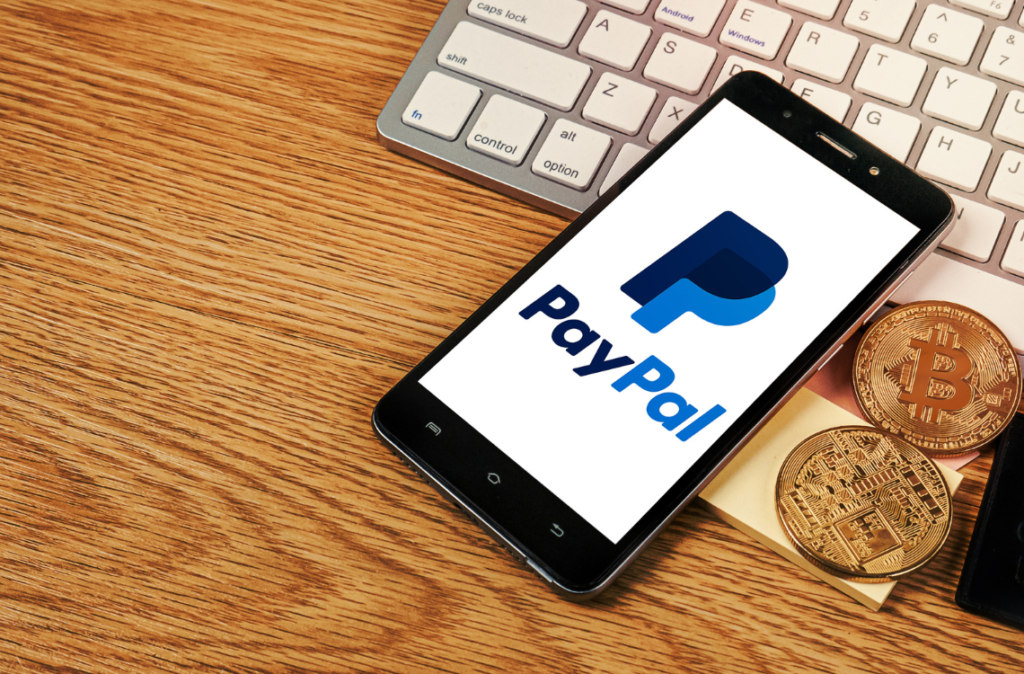PayPal is a renowned online payment system and has undeniably become a fixture in global ecommerce. Its user-friendly interface and robust security measures offer a platform for effortless transactions for millions of users worldwide. However, despite its widespread use and considerable advantages, PayPal users occasionally face a hurdle known as ‘account limitations.’ This predicament can hinder personal and business transactions, leading to potential losses and setbacks. Understanding and appropriately responding to these limitations become crucial for seamless online financial operations.
Understanding PayPal Account Limitations

Before delving into the resolution strategies, it’s important to first comprehend what PayPal account limitations are and why they are imposed.
A. What are PayPal Account Limitations?
PayPal account limitations are provisional restrictions placed on a user’s account that primarily impact the account’s financial functionalities. When an account is limited, users may find it challenging to send or withdraw money, close their accounts, or even receive payments in some cases. These limitations are preventive measures that PayPal employs to ensure the safety of the user’s account and maintain a secure financial environment.
B. Why Does PayPal Impose Account Limitations?
The reasons behind the imposition of account limitations can be multiple. They generally revolve around the security of the account and the network. PayPal might limit an account if they suspect fraudulent or suspicious activities, such as unauthorized transactions or sudden, significant changes in the account’s usual activities.
In other cases, PayPal could limit the account due to compliance with regulatory mandates. For instance, if the user’s account transactions exceed a specific amount, PayPal is required by law to confirm the user’s identity. Failure to comply with these identity verification requests can lead to account limitations.
Another reason could be the violation of PayPal’s Acceptable Use Policy. If a user is found to be involved in prohibited activities, such as selling illegal goods or services, the account may be limited.
C. Common Triggers for PayPal Limitations
While the exact triggers for account limitations can vary from case to case, some common triggers include:
A rapid increase in the volume or size of transactions: The rapid increase in the volume or size of transactions could indicate a change in the usual pattern of the account activities and might trigger a limitation.
High-risk category transactions: Certain transactions, such as those related to gambling or adult services, can be considered high-risk and could potentially trigger a limitation.
Multiple chargebacks or disputes: Frequent disputes or chargebacks can indicate customer dissatisfaction or potentially fraudulent activities, leading to limitations.
Incomplete account information: If essential account information or requested documentation needs to be included, PayPal might limit the account until the necessary information is provided.
With a clear understanding of PayPal account limitations, why they occur, and their common triggers, you are better equipped to respond to them effectively.
Types of PayPal account limitations

PayPal account limitations can be categorized into the following types:
Soft Limitations
These are temporary limitations generally placed on an account due to suspicious activity or when PayPal needs more information about a specific transaction or your account. Soft restrictions can often be lifted by providing the necessary information or documentation to PayPal.
Hard Limitations
These are more serious and are typically imposed when PayPal determines that an account has violated its Acceptable Use Policy or User Agreement. Hard limitations are usually permanent and can result in the closure of the account.
Reserve Limitations
Reserve limitations involve PayPal holding a certain amount of the account holder’s money as a reserve. These limitations are usually in place to cover potential financial risks, such as chargebacks or disputes. The reserve can be a fixed amount or a percentage of the account holder’s sales.
Transaction Limitations
These limitations restrict the amount of money sent or withdrawn from the account within a certain period. Transaction limitations are often placed on new accounts or accounts with a history of policy violations.
Account Access Limitations
These limitations restrict the account holder’s ability to access certain features of their PayPal account, including limitations on sending, receiving, withdrawing money, or closing the account.
Different factors can trigger these limitations and may require further steps to resolve them. It’s important to understand the specific type of limitation placed on your account so you can take the appropriate action.
How PayPal Notifies Users of Account Limitations?
PayPal communicates with its users about account limitations efficiently and transparently.
A. Notification Process
Upon identifying a potential issue that could warrant an account limitation, PayPal notifies the user via email and through the account’s dashboard. The email typically contains the reason for the limitation and the steps necessary to lift it. Concurrently, a message will also appear on the user’s PayPal account dashboard, providing the same details.
B. Information in the Notification
The notification informs the user about the specific reason for the limitation, the impact on the account’s functionality, and the steps to resolve it. Often, PayPal will ask for additional information or documents to verify the user’s identity or validate certain transactions. These can include proof of address, proof of shipment, business licenses, or additional information about specific transactions.
While receiving such a notification can be distressing, responding promptly and providing all the requested information is crucial.
Consequences of PayPal Account Limitations for Merchants
When PayPal imposes account limitations, it can seriously affect merchants. The restrictions can not only disrupt business operations but can also impact cash flow and relationships with customers. Let’s delve deeper into these repercussions.
A. Potential Business Disruptions
Account limitations can severely disrupt a merchant’s daily operations. If a merchant relies heavily on PayPal for transactions, limitations can mean an inability to receive payments, which could halt business operations. For instance, an online retailer might need help to accept payments for orders, leading to delayed or canceled orders, negatively impacting sales and profitability.
Also, depending on the reason for the limitation, a merchant might need to spend a significant amount of time providing additional information or documentation to PayPal, further taking time away from managing their business.
B. Impact on Cash Flow and Transactions
Cash flow is the lifeblood of business, and any interruptions to it can have serious implications. If a merchant’s PayPal account is limited, they may not be able to transfer funds to their bank account, which can cause a cash crunch.
Merchants may also need help to issue refunds to customers, which could lead to disputes and chargebacks. Additionally, if the limitation prevents a merchant from making payments to their suppliers, it could disrupt their supply chain and hamper their ability to serve their customers effectively.
C. Customer Trust and Relationship Implications
Customer trust and relationships are among the most significant impacts of account limitations. If a merchant cannot process transactions or issue refunds due to a PayPal limitation, it can lead to customer dissatisfaction.
In today’s digital age, customers expect smooth and hassle-free transactions. Any disruptions to this can lead to a negative customer experience, potentially causing a loss of trust. This could harm the merchant’s reputation and lead to customer loss in the long run.
In the following sections, we’ll explore how PayPal notifies users of account limitations and provide six key tips on responding promptly and efficiently.
6 Key Tips to Respond to PayPal Account Limitations
As a PayPal user, you understand the convenience and ease of managing your payments and purchases. However, encountering an account limitation can be both frustrating and confusing. Below are some essential tips to effectively respond to PayPal account limitations, ensuring uninterrupted access to your funds and maintaining a secure online experience.
1- Immediate Response
Upon receiving a notification of account limitation, it’s crucial to respond immediately. Delaying your response can prolong the limitation period and disrupt your business or personal transactions.
How to Respond
Log into your PayPal account and contact the Resolution Center, which will guide you through the steps necessary to remove the limitation. This typically involves providing specific information or documents to validate your account or transactions.
2. Review PayPal’s Policies and Your Activities
Being familiar with PayPal’s User Agreement and Acceptable Use Policy is crucial. By understanding these policies, you can better comprehend why a limitation might have been imposed and how to prevent such occurrences in the future.
Self-audit of Account Activities
Review your recent account activities to identify any actions that might have triggered the limitation. Look for patterns or activities that deviate from your usual business practices. This can help you spot potential issues and address them proactively.
3. Provide Requested Information Promptly
The quickest way to have a limitation lifted is to provide all the requested information or documents promptly. Delaying or providing incomplete information can prolong the limitation.
How to Submit Information
Submit the requested information through the Resolution Center on your PayPal account. Ensure that the documents are clear, legible, and valid. If you face difficulties, don’t hesitate to contact PayPal’s customer service for assistance.
4. Maintain Clear and Open Communication with PayPal
Effective communication with PayPal’s customer service ensures a quick resolution. Here are a few tips for communicating:
Be clear and concise: When communicating with PayPal, provide all necessary details about your situation. The more accurate and clear your information, the better PayPal can assist you.
Be patient: The resolution process might take some time, especially if your case is complicated. Patience is key during this period.
Follow up regularly: Don’t hesitate to follow up on your case. Regular follow-ups can show your commitment to resolving the issue.
Importance of Polite and Professional Interaction
While it can be frustrating to deal with account limitations, always remember to stay professional and polite in your communication. Remember that the customer service team is there to help and guide you through this process.
5. Consider Professional Assistance
If your account limitations are complex or you’re dealing with significant money, consider seeking professional assistance. This could be a lawyer, a financial advisor, or a company dealing with such matters.
Benefits of Professional Assistance
Professionals can provide expert advice and strategies based on their experience with similar cases. They can help you understand the intricacies of PayPal’s policies and speed up the resolution process.
6. Prevention is Better than Cure
Preventing a limitation is always better than dealing with one. Here are some preventive measures:
- Regularly review and update your account information.
- Conduct business transparently and avoid high-risk transactions.
- Communicate with your customers to avoid misunderstandings leading to disputes or chargebacks.
- Comply with PayPal’s policies and regulations.
Importance of Regular Account Monitoring and Compliance with PayPal Policies
Regularly monitoring your account can help you spot unusual activities early and take preventive measures. Awareness of and complying with PayPal’s policies can help you avoid pitfalls that might lead to account limitations.
Case Studies of Resolving PayPal Account Limitations
Learning from real-life experiences can be immensely valuable. Here, we will discuss a few cases where PayPal users effectively resolved their account limitations.
Case Study 1: In one instance, a small eCommerce business faced a limitation due to a sudden spike in sales during the holiday season. PayPal viewed this as an unusual activity and limited the account. The business owner promptly responded by providing all the requested information, including sales invoices and shipment tracking numbers. They also explained the reason for the sales increase. PayPal lifted the limitation within a week, allowing the business to resume operations.
Case Study 2: A freelance graphic designer had her account limited due to multiple large transactions within a short period. She responded immediately by providing proof of her client contracts and examples of her work. She maintained clear communication with PayPal throughout the process, resulting in a successful resolution within a few days.
Lessons from the Case Studies
Both cases highlight the importance of a swift and proactive response when facing account limitations. They also emphasize clear communication and promptly provide all requested information. Furthermore, these cases illustrate that account limitations, although inconvenient, are temporary and resolvable with the right approach.
Tips for Preventing Future PayPal Limitations
Preventing account limitations is significantly more convenient than dealing with them. Below are some valuable tips to help you avoid future limitations on your PayPal account:
Keep Your Account Information Up-to-date: Regularly review and update your account information. Ensure your contact details, including your phone number and email address, are current. If PayPal needs to reach you, they’ll use the information on your account.
Verify Your Account: Unverified accounts are more likely to face limitations. Take the necessary steps to verify your account by linking and confirming your bank account or credit card.
Maintain Transparent Business Practices: If you’re using your PayPal account for business, be clear about what you’re selling, provide accurate descriptions of your products or services, and uphold excellent customer service. This will minimize disputes and chargebacks, reducing the risk of limitations.
Avoid Rapid Increases in Sales Volume or Transaction Size: A sudden increase in your sales volume or transaction size might raise a red flag for PayPal. If a rapid increase is expected, consider notifying PayPal in advance.
Comply with PayPal’s Policies: Familiarize yourself with PayPal’s User Agreement and Acceptable Use Policy. Adherence to these policies is vital to avoid account limitations.
Monitor Your Account Regularly: Regularly review your account activities. Look for any unusual activity and address it promptly. This could help you spot potential issues before they escalate into larger problems.
Communicate with Customers: Keep a clear line of communication with your customers to avoid misunderstandings that could lead to disputes or chargebacks.
Maintain a Healthy Balance: Try to maintain a positive balance in your PayPal account. A zero or negative balance could make your account seem riskier and possibly trigger limitations.
By following these preventive measures, you can significantly reduce the risk of encountering future limitations on your PayPal account, ensuring smoother transactions for your online business.
Final Thoughts
Dealing with PayPal account limitations can be daunting, but you can navigate this challenge effectively with the proper knowledge and approach. Remember, the key is to respond swiftly, provide all the requested information, maintain clear communication, and comply with PayPal’s policies.
In addition to these reactive measures, remember that the best strategy is always proactive prevention. Regular account monitoring, adherence to PayPal’s policies, and transparent business practices can significantly reduce the risk of facing account limitations.
PayPal’s primary aim is to create a safe and reliable platform for online transactions. Understanding this can help you see account limitations not as roadblocks but as steps toward a more secure online financial environment.

